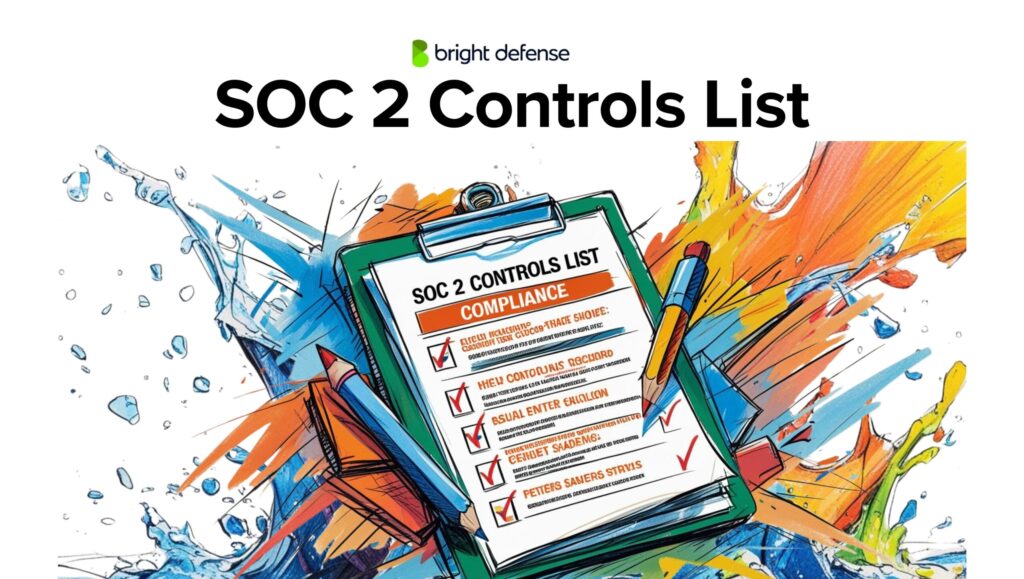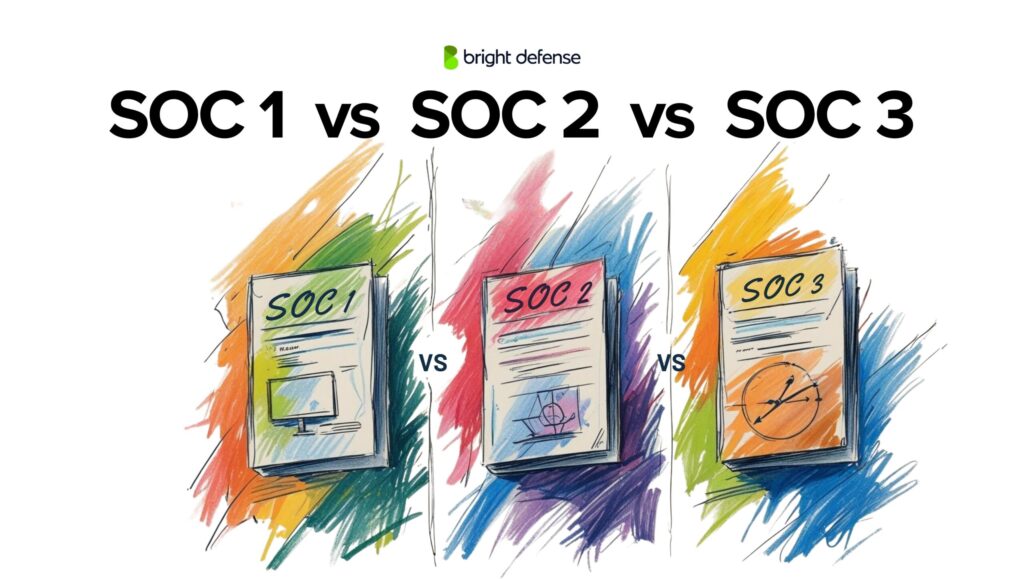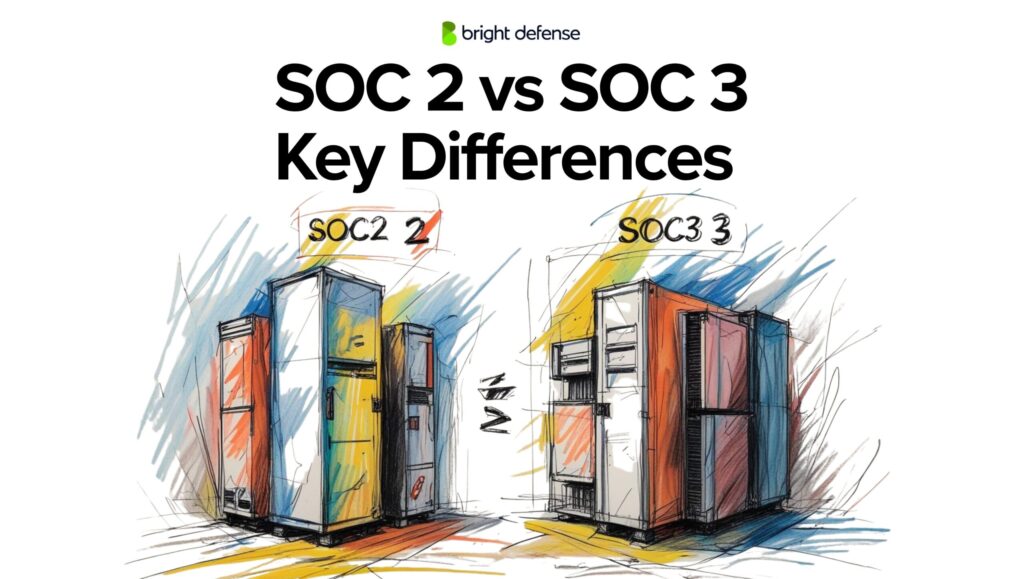
John Minnix - Compliance Strategist
June 28, 2025
NIST 800-171 Compliance for Small Business
Introduction
Due to expanding regulations and growing risks, compliance is an increasingly important topic for small businesses. According to Accenture, 43% of all cyber attacks in 2023 targeted small businesses. If your organization handles sensitive data or does business with federal government agencies, you may consider the NIST 800-171 compliance framework to improve your security posture and meet customer requirements. In this guide, we’ll explore NIST 800-171 for small business and answer questions about how you can achieve compliance for your business.
Let’s get started!
What is NIST 800-171?
NIST 800-171, developed by the National Institute of Standards and Technology (NIST), is a comprehensive framework designed to prevent unauthorized disclosure of Controlled Unclassified Information (CUI) in non-federal systems and organizations. While originally crafted for federal agencies and DoD contractors, the relevance of NIST 800-171 extends to small businesses that handle CUI directly or indirectly through contracts.
Small businesses must recognize that protecting CUI has national security consequences. Complying with NIST 800-171 is not merely a regulatory requirement but a commitment to your company’s security and US national security.

Does My Small Business Need NIST 800-171 Compliance?
Many small businesses struggle to understand if NIST 800-171 compliance is necessary for their specific circumstances. To determine if your small business needs to pursue NIST 800-171 compliance, consider the following factors:
Are You Handling Controlled Unclassified Information (CUI)?
NIST 800-171 compliance primarily applies to organizations that handle Controlled Unclassified Information (CUI). CUI includes sensitive information related to national security that, if disclosed or altered without authorization, could harm the United States. CUI encompasses a wide range of information types, including data related to national security, privacy, proprietary business information, and other critical areas.
The U.S. federal government defines CUI to safeguard this information from unauthorized access or disclosure. This ensures that it remains confidential, secure, and protected from potential threats. Organizations that handle CUI, especially government contractors and those working with government agencies, are expected to adhere to specific cybersecurity standards and guidelines, such as NIST 800-171, to maintain the security and integrity of this sensitive data.
Are You Pursuing Government Contracts or Partnerships?
Many federal and state agencies and larger organizations now require contractors and partners to adhere to specific cybersecurity standards, including NIST 800-171. If your small business seeks to win a government contract, compliance may be mandatory to qualify for contracts.
Do You Have Sensitive Data to Protect?
Even if your small business does not handle CUI, NIST 800-171 provides a valuable template for enhancing your organization’s data security. If your organization deals with sensitive information, such as customer data, financial records, or intellectual property, implementing NIST 800-171 controls can significantly strengthen your cybersecurity posture and protect against cyber threats.
Are You in a Highly Regulated Industry?
While NIST 800-171 compliance may not be mandated by law for all small businesses, other regulations, such as data protection laws, industry-specific standards, or contractual obligations, may require similar cybersecurity measures. NIST 800-171 can serve as a valuable foundation for meeting these requirements.
In summary, the need for NIST 800-171 compliance depends on various factors. NIST compliance can provide significant advantages in cybersecurity, risk mitigation, and market competitiveness, even if it’s not strictly mandatory. Assess your situation and consult with cybersecurity experts or legal advisors to make an informed decision regarding NIST 800-171 compliance for your small business.

NIST 800-171 Simplified
NIST 800-171 compliance might seem daunting, especially for small businesses. Here’s a simplified breakdown of what you should focus on to meet NIST security requirements:
1. Access Control
- Verify and manage who accesses your systems and data.
- User accounts should require strong passwords and, when possible, multi-factor authentication.
- Give users only the access they need (least privilege).
- Keep access policies up to date.
2. Awareness and Training
- Train your employees to recognize and report security threats.
- Regularly remind them about security best practices.
- Consider using security awareness training services like KnowBe4.
3. Configuration Management
- Document your system configurations.
- Manage changes carefully.
- Assess the security impact of any changes.
4. Incident Response
- Create a plan for handling security incidents.
- Test and update this plan regularly.
- Explore incident response services like Bright Defense’s vCISO.
5. System and Information Integrity
- Set up tools to spot unauthorized changes in your systems and data.
- Monitor for unusual activities.
- Consider using compliance automation tools to ease the workload.

6. Security Assessment and Authorization
- Perform a risk assessment and gap analysis of your information systems
- Authorize systems for use based on the assessment.
- This involves risk assessments, security testing, and documentation.
7. Data Protection and Encryption
- Implement encryption measures for sensitive data, especially during transmission.
- Protect data at rest with encryption solutions.
- Consider encrypting sensitive emails and documents.
8. Security Monitoring and Incident Detection
- Implement continuous monitoring for security threats.
- Employ intrusion detection systems (IDS) and intrusion prevention systems (IPS).
- Invest in log analysis tools to identify unusual activities.
9. Third-Party Assessments
- If you work with third-party vendors or contractors, ensure they meet NIST 800-171 requirements.
- Conduct assessments or audits of these partners to verify their compliance and identify compliance gaps.
10. Regular Auditing and Reporting
- Regularly audit your compliance efforts to ensure they remain effective.
- Prepare for external audits and assessments.
- Maintain detailed records of your compliance activities for reporting purposes.
This list can look pretty daunting for a small business owner. Relying on compliance experts, like the team at Bright Defense, can ease the burden and speed up your time to compliance. Additionally, leveraging third-party tools and compliance automation platforms can reduce manual work and increase efficiency.

Benefits of NIST 800-171 Compliance for Small Business
Compliance with NIST 800-171 offers a wide array of advantages that extend beyond mere regulatory adherence. If you invest resources in compliance, you can realize significant benefits:
Enhanced Cybersecurity
At its core, NIST 800-171 is a cybersecurity framework designed to safeguard sensitive information. Small businesses significantly enhance their overall cybersecurity posture by implementing the security controls and measures outlined in NIST 800-171. This improvement helps protect against various cyber threats, including data breaches, malware attacks, and unauthorized access. In an era where cyberattacks are on the rise, this heightened security is invaluable in safeguarding sensitive data, business operations, and customer trust.
Competitive Advantage
Compliance with NIST 800-171 can provide a distinct competitive advantage. This is especially true if you are seeking government contracts. Government agencies and large organizations increasingly require their partners and contractors to demonstrate compliance with cybersecurity standards. 44% of companies require cybersecurity as part of the request for proposal process. Small businesses that meet compliance requirements can remain competitive with other government contractors bidding on federal contracts. NIST SP 800 171 compliance is also allows your company to do business with larger private sector clients.
Increased Trust
Customers, clients, and partners are likelier to trust businesses that adhere to recognized cybersecurity standards like NIST 800-171. Compliance demonstrates a commitment to data security, privacy, and protecting defense information. This heightened trust can lead to stronger and more enduring relationships with customers and partners. It also shields your organization from reputational damage from data breaches or security incidents.
Cost Savings
While the initial investment in NIST 800-171 compliance may seem daunting, the long-term cost savings can be substantial. Preventing cyber incidents through compliance measures saves businesses from the financial burdens of data breach recovery, potential legal action, and damage to their reputation. Additionally, compliance can streamline IT operations and reduce the risk of costly downtime, further contributing to cost savings.
Improved Incident Response
Compliance with NIST 800-171 includes requirements for developing and documenting an incident response plan. This plan outlines steps to be taken for a security breach. Small businesses with a well-defined incident response strategy can react more effectively to security incidents, minimizing the potential damage and downtime. This preparedness can be a critical factor in mitigating the impact of cyberattacks.
In conclusion, NIST 800-171 compliance offers small businesses more than just regulatory compliance. It provides a strategic advantage. By embracing compliance, small businesses can bolster their cybersecurity defenses, gain a competitive edge, build trust with stakeholders, mitigate risks, save costs, and enhance their overall resilience in an increasingly digital world.

Comparing NIST to Other Relevant Frameworks
When it comes to cybersecurity and compliance, NIST 800-171 is not the only framework to consider. Two other important frameworks are often mentioned in conjunction with NIST:
CMMC (Cybersecurity Maturity Model Certification):
Purpose: CMMC is designed to enhance cybersecurity measures for contractors in the defense industrial base (DIB). It aims to ensure that organizations adequately protect sensitive information, including Controlled Unclassified Information (CUI).
Key Differences from NIST 800-171:
- Maturity Levels: CMMC introduces maturity levels (ranging from 1 to 3), while NIST 800-171 focuses on security controls. Each level corresponds to increasing cybersecurity maturity.
- Third-Party Certification: CMMC requires third-party assessments and certification for Levels 2 and 3, while NIST 800-171 primarily relies on self-assessment.
- Broad Applicability: CMMC applies to a wider range of organizations in the Defense Industrial Base (DIB), including DoD contractors, subcontractors and suppliers, whereas NIST 800-171 is often a focus for prime contractors.
DFARS (Defense Federal Acquisition Regulation Supplement):
Purpose: DFARS compliance outlines specific cybersecurity requirements for contractors that handle controlled unclassified information (CUI) on behalf of the Department of Defense (DoD).
Key Differences from NIST 800-171:
- Regulatory Context: DFARS is a set of regulations, while NIST 800-171 is a framework referenced within DFARS.
- Contractual Requirement: DFARS requires contractors to comply with specific security controls, including those from NIST 800-171, as a contractual obligation when handling DoD information.
- Enforcement: Failing to become DFARS compliant can have legal and financial consequences, including potential contract termination.
In summary, while NIST 800-171 provides a valuable foundation for cybersecurity practices, CMMC and DFARS offer additional layers of specificity and compliance requirements, particularly for organizations working with government contracts or the defense industry. Depending on your business’s context and obligations, you may need to consider these frameworks in addition to, or in conjunction with, NIST 800-171.

Conclusion
Small businesses can reap significant rewards by embracing NIST 800-171 compliance. They must also understand the challenges and seek expert assistance when needed. With the guidance of compliance consultants like Bright Defense, small businesses can fortify their cybersecurity posture. Make NIST 800-171 compliance a strategic advantage for your small business and protect what matters most: your data, your customers, and your future.
Bright Defense Delivers NIST Compliance!
If you are looking to implement NIST controls for your small business, Bright Defense can help. Our mission is to defend the world from cybersecurity threats through continuous compliance. Our team comprises CISSP and CISA-certified security experts with 20+ years of industry experience. Bright Defense’s monthly engagement model delivers a robust security program that meets compliance requirements of NIST, SOC 2, CMMC, HIPAA, and ISO 27001.
In addition, we offers security assessments, vCISO services, security awareness training, multi-factor authentication, and more. Get started on your continuous compliance journey today with Bright Defense!
NIST Compliance – Frequently Asked Questions
What is NIST, and why is it important for my organization?
The National Institute of Standards and Technology (NIST) is a U.S. government agency responsible for developing and promoting cybersecurity standards and guidelines. NIST’s cybersecurity framework, such as NIST 800-171, provides essential guidelines for organizations to protect controlled unclassified information (CUI) and enhance their cybersecurity posture.
What is Controlled Unclassified Information (CUI), and why does it require protection?
CUI refers to sensitive information that, while not classified, is still valuable and requires protection. It includes data related to national security, privacy, proprietary business information, and more. Protecting CUI is essential to prevent unauthorized access and potential harm to national interests.
What is access management, and how does it relate to NIST compliance?
Access management is the practice of controlling and monitoring user access to systems and data. NIST compliance, such as NIST 800-171, includes access control requirements to ensure that only authorized individuals can access sensitive information. It is vital for data security.
What’s the difference between government contractors and prime contractors?
Government contractors are organizations that provide goods or services to government agencies. Prime contractors are typically larger organizations that directly enter into contracts with government departments or agencies. Prime contractors may subcontract some work to other government contractors.
Are defense contractors subject to NIST 800-171 compliance?
Yes, they are often required to comply with NIST 800-171, especially if they handle controlled unclassified information (CUI) on behalf of the Department of Defense (DoD). Compliance helps protect sensitive data and ensures the security of defense-related projects.
How do I implement NIST 800-171 compliance in my organization?
Implementing NIST 800-171 compliance involves several steps, including assessing your current cybersecurity posture, identifying applicable controls, developing policies and procedures, training employees, and regularly monitoring and updating your security measures. It often requires a systematic and tailored approach.
What resources and procedures are necessary for NIST 800-171 compliance?
To achieve compliance, you’ll need to develop resources such as security policies, access control mechanisms, encryption tools, employee training programs, and incident response procedures. These resources help protect controlled unclassified information (CUI) and meet NIST 800-171 requirements effectively.
Why is government compliance important for organizations?
Government compliance, including NIST 800-171, is crucial for organizations that work with government contracts or handle sensitive information. It helps ensure data security, protect national interests, maintain contractual obligations, and avoid legal and financial consequences associated with non-compliance.
Get In Touch



